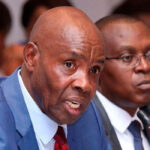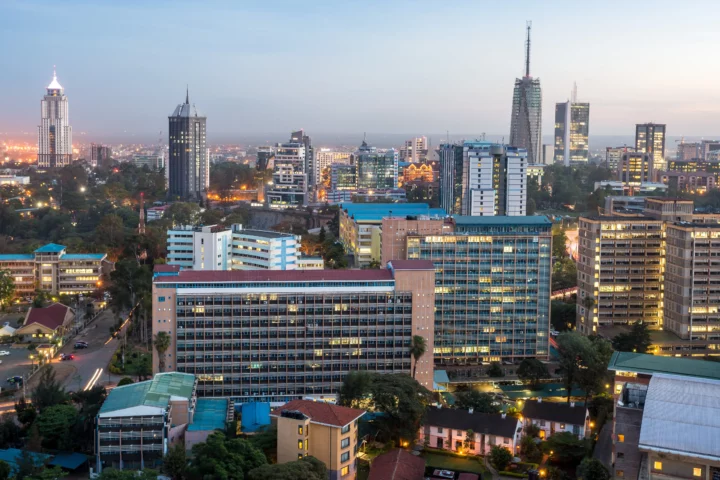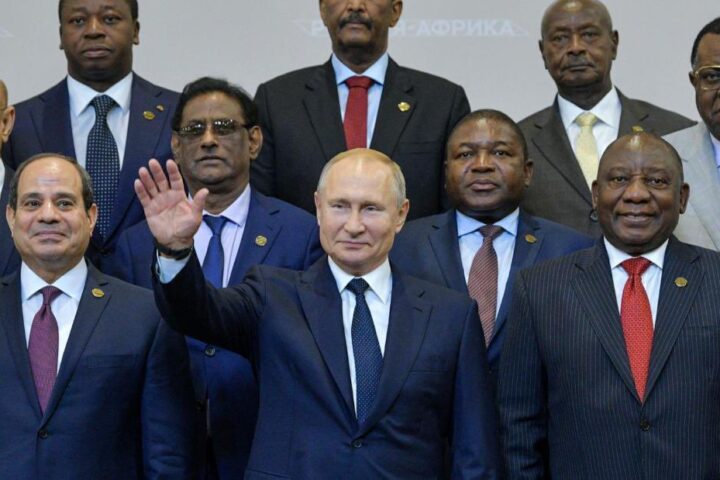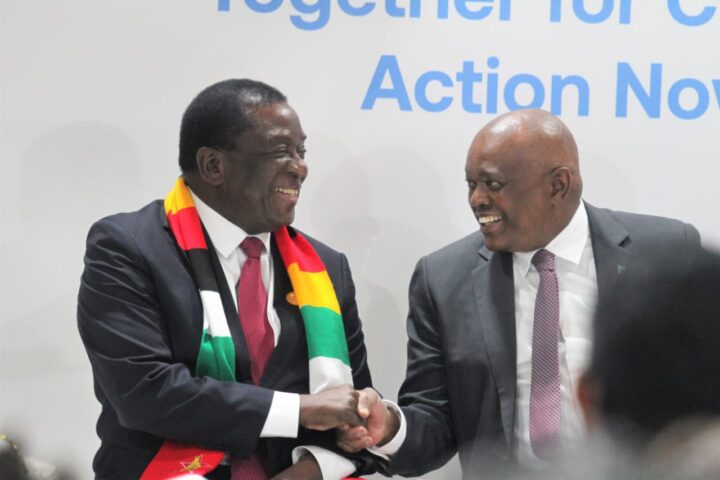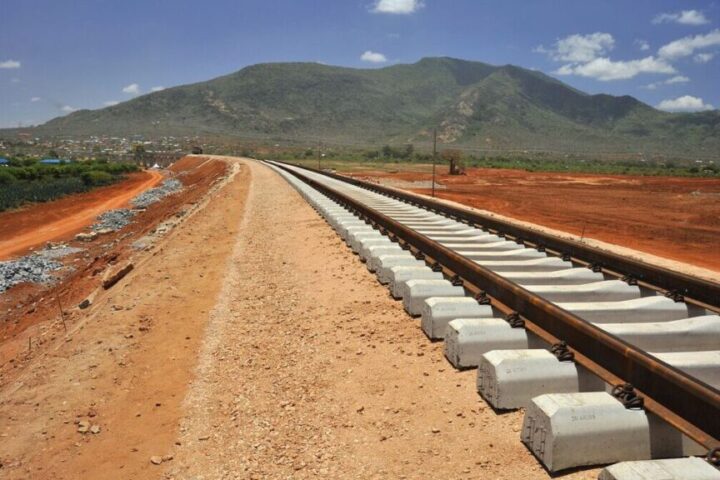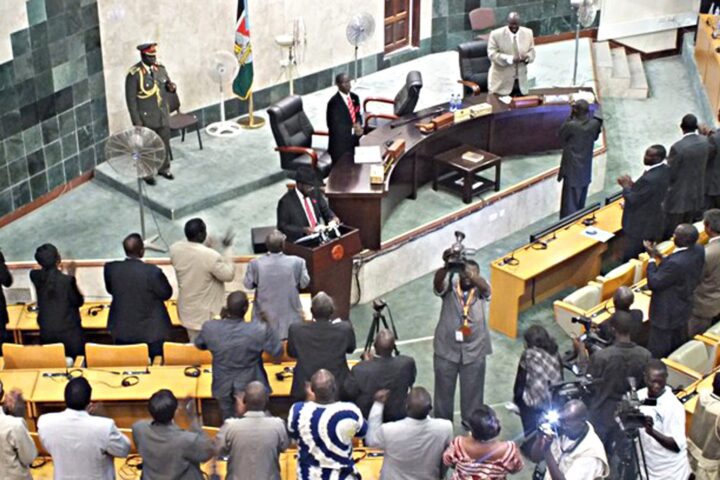In a significant development, President William Ruto’s administration has strategically approached Chinese investors to consider funding the Mau Summit Highway project worth Sh184 billion.
This decision follows a disagreement with the French consortium that initially secured the tender. By doing so, Kenya not only challenges France’s involvement in the project but also demonstrates its determination to secure funding for its largest road project to date.

During a meeting with a delegation from China, the President and other senior government officials discussed multiple infrastructure projects suitable for investment. The expansion of the 233-kilometer Mau Summit Highway was highlighted as an excellent opportunity for Chinese investors. This move doesn’t come as a surprise since the Chinese government had previously expressed interest in participating in such initiatives within Kenya.
The win by the French consortium appeared promising at first for the Mau Summit Highway project. However, Joseph Mbugua, Principal Secretary of Roads Transport, recently disclosed that the Kenya Kwanza administration had chosen to pause the project due to concerns over its overall cost. Given the country’s tight fiscal constraints, it became imperative to review and make adjustments in order to ensure greater affordability.
Negotiations are currently underway between the government and the contractors and financiers involved in the project. This delay will inevitably impact the roll-out of the project, which has attracted interest from major institutions such as the World Bank and the African Development Fund. The government’s objective is to negotiate a more financially viable agreement that will meet both the country’s infrastructure needs and its fiscal limitations.
The decision to approach Chinese investors is a bold move by President Ruto’s administration. It signifies a shift in focus, as the government seeks alternative financing options for its infrastructure projects. By challenging France for the Sh184 billion road project, Kenya is demonstrating that it is willing to explore all avenues to secure funding and promote economic development.
EXCLUSIVE: In a dramatic turn of events, President @WilliamsRuto‘s administration has taken a strategic move to present Sh184 billion Mau Summit Highway project to Chinese investors.
This decision comes after a fallout with the French consortium that initially won the tender.
— Ericson Mangoli (@ericsonmangoli) July 24, 2023
This strategic move also comes at a time when Kenya is navigating its position in the global arena. The country is increasingly becoming an attractive investment destination, with its growing economy and vast potential. By opening up opportunities to Chinese investors, Kenya is strengthening its ties with one of the world’s largest economies and positioning itself as a gateway for Chinese investments into Africa.
However, the decision to pivot towards China also raises questions about Kenya’s relationship with traditional Western partners. The French consortium’s loss in this project is indicative of a shifting balance of power in international relations, with Kenya diversifying its sources of funding and partners. This marks a departure from the conventional routes taken by African countries in seeking support from Western nations.
On Saturday, the Kenyan government made a strategic move to entice the Chinese to participate in the construction of the Nairobi-Nakuru-Mau Summit toll road. This move is aimed at leveraging the expertise and resources of the Chinese government to advance infrastructure development in Kenya.
During a high-level meeting with Wang Yi, a prominent member of the Communist Party of China, President Ruto expressed the readiness of the Kenyan government to expedite discussions on pending road projects. These projects, including the widening of a 175-kilometer four-lane dual carriageway, can be pursued either through public-private partnerships or government-to-government initiatives.
In response, Mr. Wang assured the Kenyan government that China would focus on areas that would contribute to Kenya’s prosperity. This signifies China’s commitment to supporting the Kenyan government’s priority areas of interest.
Further discussions took place between Kenya’s Roads Cabinet Secretary Kipchumba Murkomen and a delegation from China led by Vice Minister for Foreign Affairs Deng Li. The focus of these discussions was on the pending projects in the road and transport sector that were previously raised by President Ruto.
Aside from the Nairobi-Nakuru-Mau Summit toll road, the Kenyan government has plans to upgrade other critical infrastructure such as the Jomo Kenyatta International Airport (JKIA) and the ports of Mombasa and Lamu. These developments are part of the government’s efforts to enhance transportation connectivity and facilitate trade within the country and the East African region.
The involvement of the Chinese in these infrastructure projects is significant for several reasons. Firstly, China has extensive experience in constructing large-scale infrastructure projects globally, with a track record of successful implementations. This expertise can greatly benefit Kenya’s infrastructure development goals.
Secondly, China’s financial capabilities can play a crucial role in funding these projects. The Chinese government has been actively involved in infrastructure development through initiatives like the Belt and Road Initiative, which aims to enhance connectivity between Asia, Europe, and Africa. Kenya can leverage these opportunities to secure the necessary funding for its infrastructure projects.
Thirdly, Chinese involvement can help boost Kenya’s economy through job creation and increased economic activity. The construction industry, in particular, is a significant contributor to employment and economic growth. The participation of Chinese companies in these projects can create job opportunities for Kenyans and stimulate local businesses.
The French consortium, composed of Vinci Highways SAS, Meridian Infrastructure Africa Fund, and Vinci Concessions SAS, has been entrusted with the significant task of expanding the main artery from Nairobi to western Kenya. Their objective is to transform the existing road into a four-lane dual carriageway, employing the public-private partnership (PPP) model. The consortium, collectively known as the Rift Valley Highway Limited, plans to recoup their investments over a 30-year period through toll fees charged on the road.
This ambitious project, which enjoys financial support from the World Bank and the African Development Bank, was initiated under the administration of former president Uhuru Kenyatta. However, the construction of the project awaits the approval of the new administration, despite its slated commencement in September 2021.
The potential involvement of the Chinese in this tender has caused some speculation. Should they secure the contract, it would mark their second major toll road project in Kenya. The China Road and Bridge Corporation (CRBC) has already constructed the Nairobi Expressway, a project of considerable scale, serving as the largest PPP endeavor to date.
China’s keen interest in the new PPP model, favored by the Kenya Kwanza administration, arises as the government finds itself faced with limited fiscal space to accumulate additional debt. In light of this, China perceives an opportunity to navigate these constraints and solidify its presence in Kenya’s infrastructure projects.
Both the contractors and financiers involved in the construction project have eagerly been awaiting President Ruto’s decision on when to begin the construction of the road. This anticipated announcement stems from President Ruto’s recent meetings with the French President Emmanuel Macron during his two visits to France in January. It is widely understood that the construction of the road was a significant topic of discussion during their bilateral talks.
France, known for its extensive activities in Francophone countries, appears to have expanded its interests beyond this sphere and has now targeted Kenya as a potential entry point into the East African region. With this newfound focus on Kenya, France is not only showcasing its commitment to strengthening bilateral ties but also aims to tap into the vast opportunities and economic potential that the East African region has to offer.
The construction of this road serves as a concrete symbol of the burgeoning partnership between France and Kenya, suggesting a mutual understanding of the growing importance of regional connectivity and trade.






